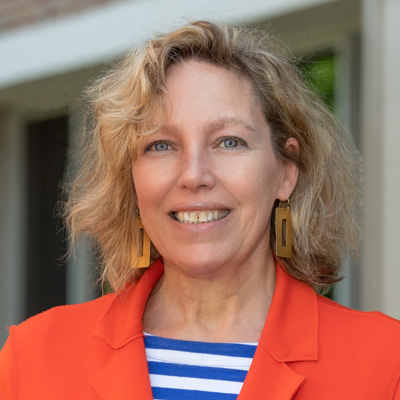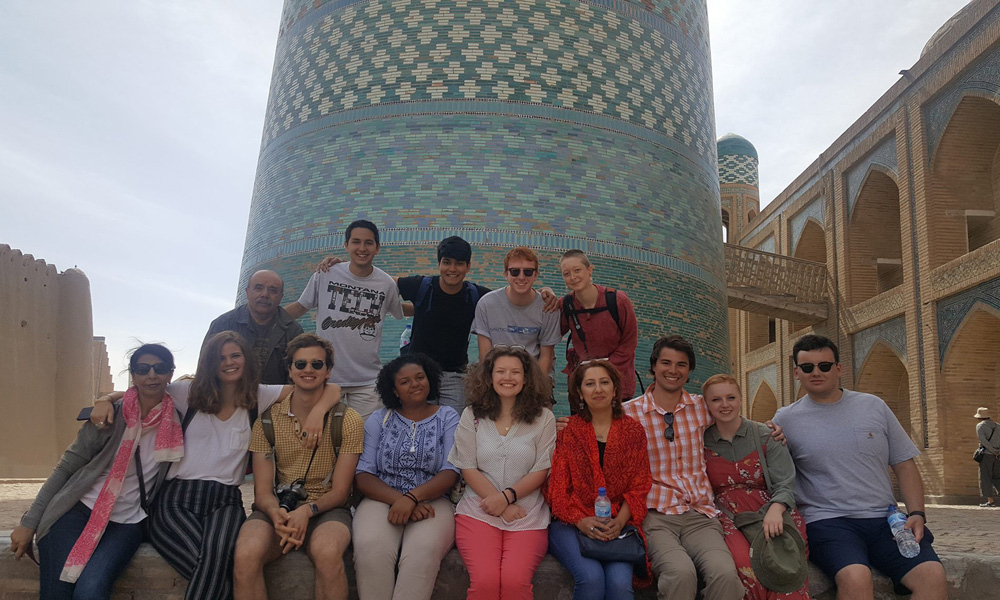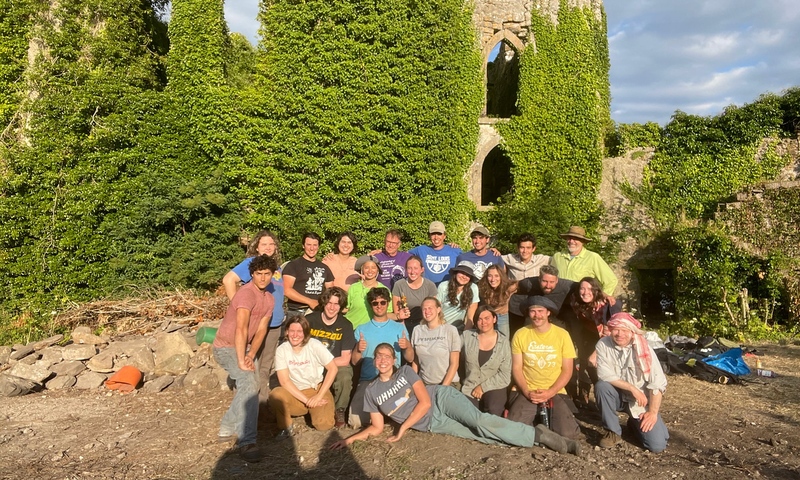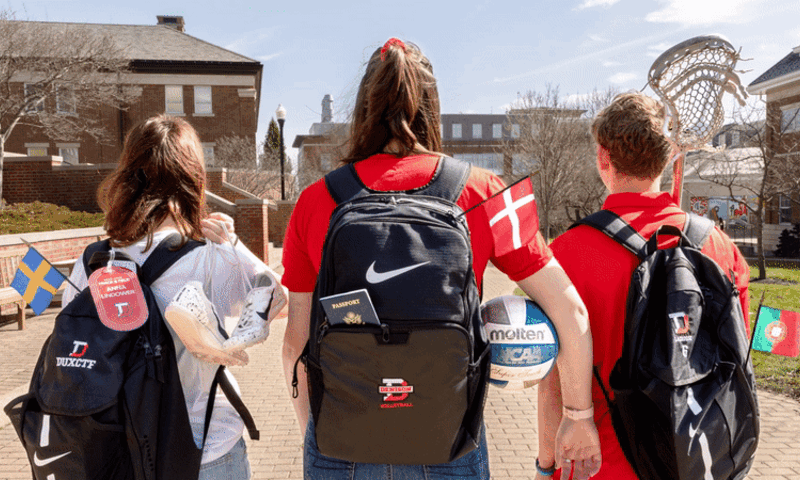The Central Asian countries of Tajikistan and Uzbekistan might occasionally be featured on the world stage, but they are not your typical study abroad locations — which makes a Summer Seminar there a unique learning experience with unexpected benefits.
In the summer, eleven Denison students embarked on a journey to Tajikistan and Uzbekistan. They explored cities, became immersed in the histories, economics, politics, and cultures of the places they visited, and met a diverse range of people — including a Denison alumna and the family of a current Denison student (it is a small, small, Denison world) — all in the span of three weeks.
The layered histories of Tajikistan and Uzbekistan create a fascinating landscape to learn about global issues. The Summer Seminar began with three intensive days on campus, as students from different academic backgrounds dove into pre-soviet, Soviet, and post-soviet issues in the region, becoming deeply informed of the culture and history of Central Asia.
When everyone arrived in Central Asia for the 18-day trip, they visited cities that have experienced cultural whiplash in recent history, having come under Soviet rule in the 1920s before becoming part of the USSR.
After the collapse of the Soviet Union in 1991, these countries and cities became independent and restructured into capitalist societies. The abrupt reorientation manifested in changes to political structures and social institutions, as well as in public art and monuments.
Students were able to see this history through different eras of art and architecture, as they considered the transformations involved and the implications of a changing society.
They also learned about the multiple stakeholders regarding the Soviet Union, something that U.S. education rarely delves into. For example, Kathryn Postma’20 was inspired to go on the trip because she never learned about this area of the world before. “My preconceived notions were subverted.”
Zarrina Juraqulova, assistant professor of economics, and Sohrab Behdad, professor of economics led the trip.
“When I came to Denison I wanted to have a class relevant to the Soviet Union, for the students’ as well as for my own experience. I wanted to share my own knowledge and experience of Central Asia with students,” Juraqulova says about the seminar, which connected to her research on gender and health outcomes in Central Asia.
“We were able to cover so much in a few short weeks,” she adds.
“The trip re-directed my entire academic focus.”
Although the students on the trip came from a variety of backgrounds and majors, they were each able to connect the trip to their studies. Mark Reid ’21, majoring in international studies and environmental studies, was inspired by a project he completed on the trip. In fact, he expanded on his research back at Denison.
“All of my interests have turned towards Central Asia. My senior research is now about water diplomacy in the region,” he says. “The trip re-directed my entire academic focus.”
Maddie McKenney-Lydick ’20, a women and gender studies major, notes, “My Western education was called into question on this trip… it changed how I view my position in the world and in academia.”
As a biochemistry major on the pre-med track, Postma was able to learn about her discipline in a whole new way. She visited the birthplace of Avicenna, who is considered the father of modern medicine. “A lot of the science that influences Western disciplines was established in Central Asia.”
The students were able to grow close and learn from each other — and they also had the chance to meet students from Tajikistan and learn from them as well. “Everyone was so welcoming,” Reid says.
“My favorite part was being with the students and hearing about their experiences,” says Juraqulova. “I was able to teach students about something that I know, in my country of origin, and give them more information about Central Asia and help them learn from others.”
“The way that the professors taught this course was so intentional,” McKenney-Lydick says.” “It was very focused on learning and engaging with culture in an unproblematic way…they did a wonderful job at navigating and balancing the course.”



